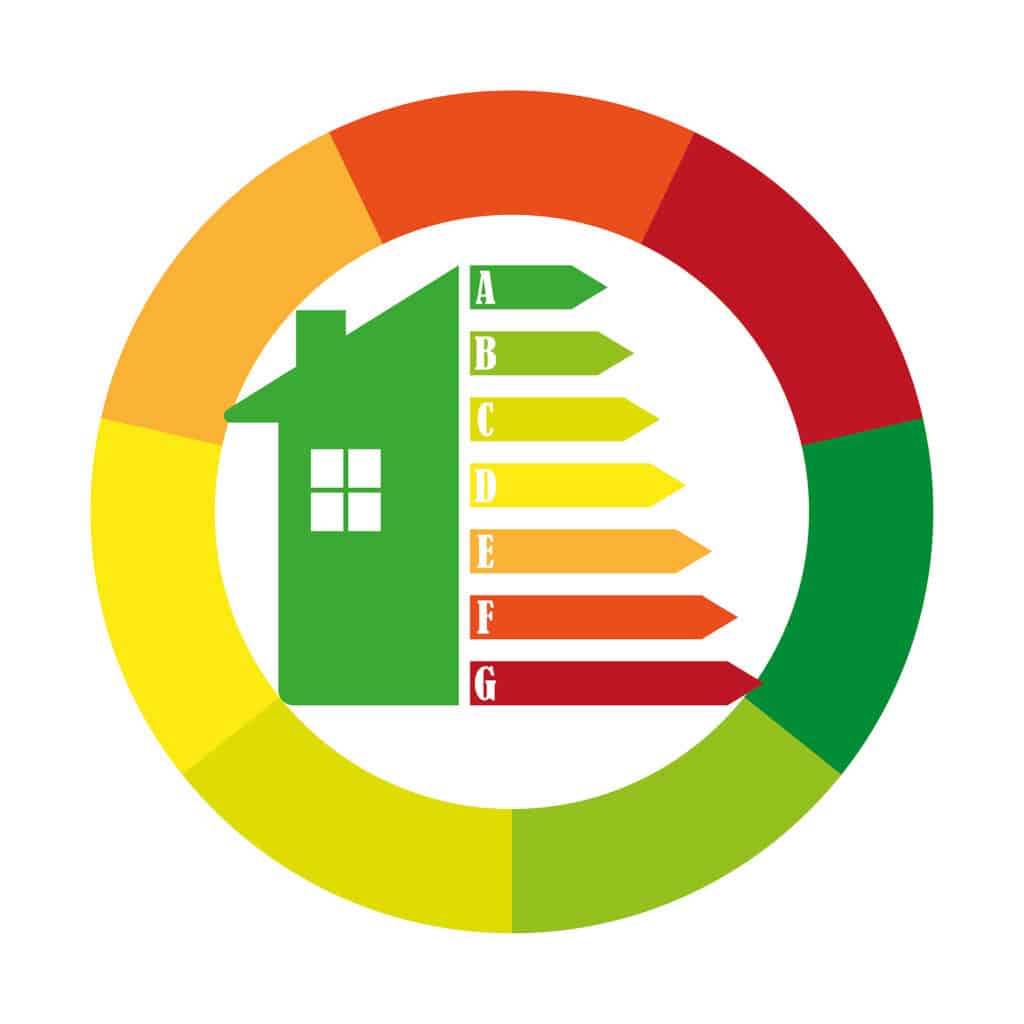The Unparalleled Benefits of Energy Efficient Appliances for Small Businesses
As a small business owner, I am constantly seeking ways to improve my bottom line while also staying mindful of my impact on the environment. One area that has often been overlooked is our energy usage. Not only does high energy consumption affect our financials, but it also contributes to environmental challenges. That's why I am seriously considering investing in energy-efficient appliances for my business.
By opting for energy-efficient appliances, I believe we can significantly reduce our operational costs in the long run. These appliances are designed to consume less energy, which means lower utility bills and more savings for the business. With the money we save, we can reinvest it back into the company, improve employee benefits, or even allocate it for sustainable initiatives that align with our eco-friendly values.
Introduction to Energy-Efficient Appliances
In today's environmentally conscious world, energy-efficient appliances have emerged as a vital and innovative solution to reduce energy consumption and combat climate change. These appliances belong to a specialized class of devices designed to execute their regular tasks while utilizing significantly less energy than their conventional counterparts.
Covering a wide range of products, from office equipment like computers and printers to household essentials like refrigerators and HVAC (Heating, Ventilation, and Air Conditioning) systems, these energy-efficient appliances embody cutting-edge technology and engineering principles.
The overarching goal of these appliances is to strike a perfect balance between performance and energy consumption. Unlike traditional models, which often prioritize high energy usage for enhanced functionality, energy-efficient appliances are engineered to deliver equivalent or even improved performance levels while consuming far less energy. This means that consumers can enjoy the same level of productivity and comfort in their daily activities without unnecessarily draining precious energy resources.
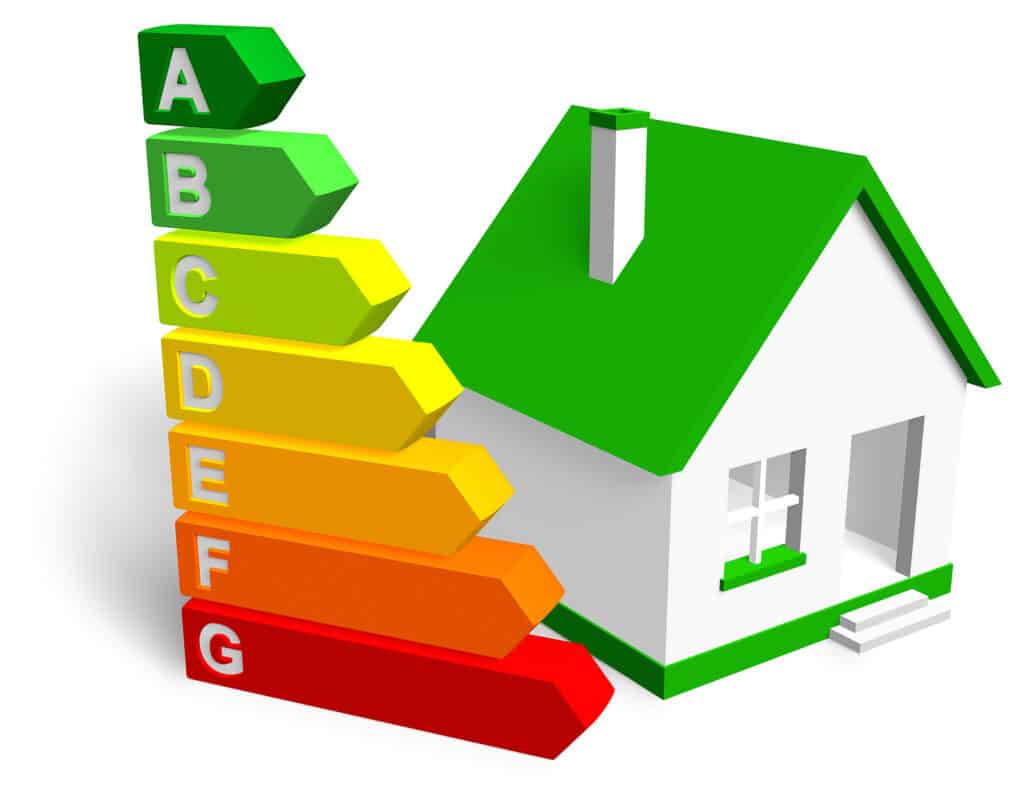
Understanding the Financial Benefits of Energy-Efficient Appliances
n today's increasingly eco-conscious business landscape, making informed decisions about energy usage and sustainability can lead to substantial financial gains. Energy-efficient appliances, despite their higher upfront costs, present a wealth of long-term financial advantages that make them a shrewd and forward-thinking investment.
Reducing Operating Costs for Businesses
One of the most compelling financial benefits of energy-efficient appliances is their significant impact on reducing utility bills. The statistics provided by energy star refrigerator, a program spearheaded by the U.S. Environmental Protection Agency (EPA), reveal that businesses can potentially achieve an average energy cost savings of up to 30% by transitioning to more energy-efficient appliances. This reduction in energy consumption directly translates to lower monthly utility expenses, resulting in substantial long-term savings for businesses of all sizes.
Moreover, the utility savings obtained from energy-efficient appliances can be even more significant when considering large-scale operations, such as manufacturing facilities, data centers, or commercial buildings, where energy demands are substantial. The cumulative effect of energy efficiency in these settings can lead to a considerable reduction in operational expenses, ultimately enhancing the company's bottom line.
Attracting Valuable Incentives and Rebates
Recognizing the critical role of energy-efficient practices in promoting sustainability and conservation, governments and energy companies actively encourage businesses to adopt greener technologies by offering enticing incentives and rebates. These financial rewards are designed to ease the initial investment burden of acquiring energy-efficient appliances, making the transition even more economically appealing.
By taking advantage of available incentives and rebates, small businesses can recoup a portion of their initial investment in energy-efficient appliances. This can range from cash rebates to tax credits or other financial incentives, depending on the region and the specific programs in place. Consequently, businesses can offset their upfront costs, accelerating the payback period and maximizing the financial returns on their energy-efficient investments.
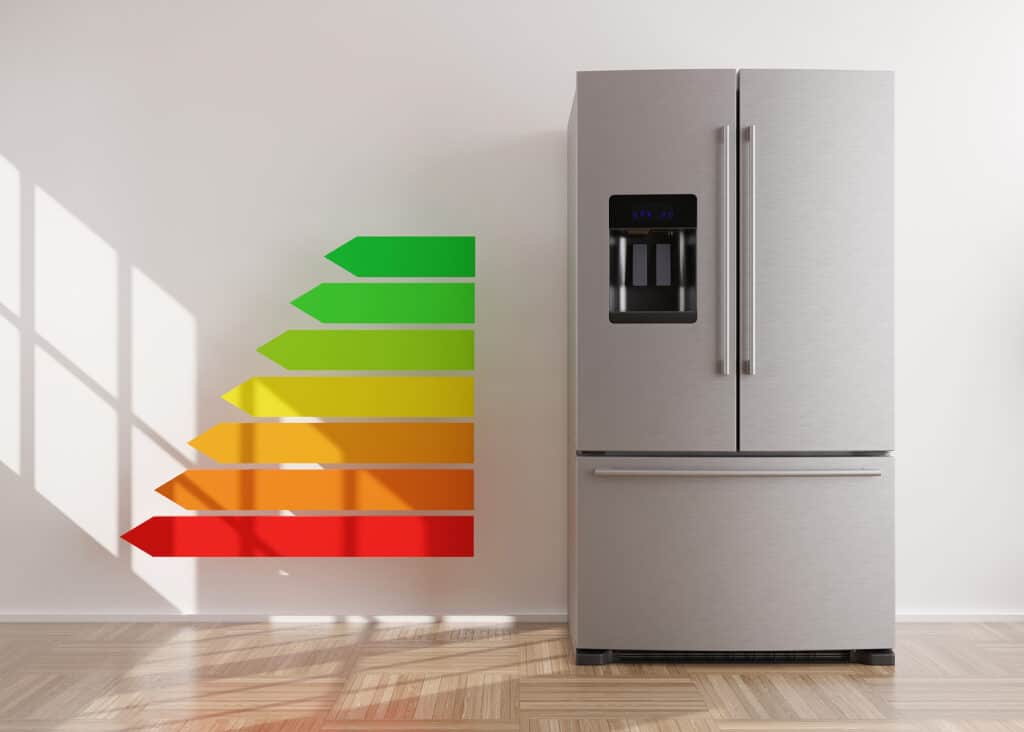
The Benefits of Energy-Efficient Appliances
Cost Savings
Energy-efficient appliances are designed to use less electricity or gas, thereby lowering your utility bills. For example, an energy-efficient refrigerator can use up to 40% less energy than conventional models, leading to substantial cost savings over the appliance's lifespan. Lower energy consumption translates directly into lower electricity or gas bills.
Reduced Environmental Impact
Energy-efficient appliances are integral to environmentally friendly living. They reduce the demand for energy, which in turn reduces the amount of fossil fuels burnt to generate electricity. This leads to a decrease in greenhouse gas emissions, which contribute to global warming and climate change.
Conservation of Resources
Every bit of electricity saved translates into a lesser need for burning coal or gas, or damming rivers for hydroelectric power. Energy-efficient appliances play a critical role in reducing the strain on our planet's finite resources, thereby enabling a more sustainable use of energy.
Improved Durability and Performance
Energy-efficient appliances often incorporate advanced technologies that not only reduce energy consumption but can also improve the overall durability of the appliances. They tend to last longer and perform better, leading to a lower need for replacement and contributing to a circular economy.
Increased Property Value
Energy-efficient homes are becoming increasingly attractive to conscientious buyers and renters. Equipping a home with energy-efficient appliances can raise its market value and its appeal in a competitive real estate market. Also, having such appliances reduces the operational costs of the home, making it financially attractive in the long run.
Energy Independence
By reducing the overall energy demand, energy-efficient appliances contribute towards national energy independence. Reduced energy demand decreases reliance on imported energy sources, which can be vulnerable to international political shifts and price volatility.
Incentives and Rebates
To encourage energy conservation, many governments, local authorities, and utility companies offer incentives, rebates, or tax credits for purchasing energy-efficient appliances. These financial incentives can offset the initial cost of the appliance, making them a more attractive investment.
Improved Comfort
Many energy-efficient appliances offer enhanced comfort alongside energy savings. For instance, an energy-efficient air conditioner can provide better cooling and dehumidification, making indoor living spaces more comfortable while using less energy.
Lower Maintenance Costs
Given that energy-efficient appliances often incorporate higher quality components and advanced technologies, they may require less frequent repairs and maintenance, saving both time and money over the appliance's life.
Resilience to Power Outages
Energy-efficient appliances can be a lifeline in areas with an unstable power grid. Due to their lower energy consumption, households can maintain essential functions for longer periods during a power outage when using generators or battery backup systems.
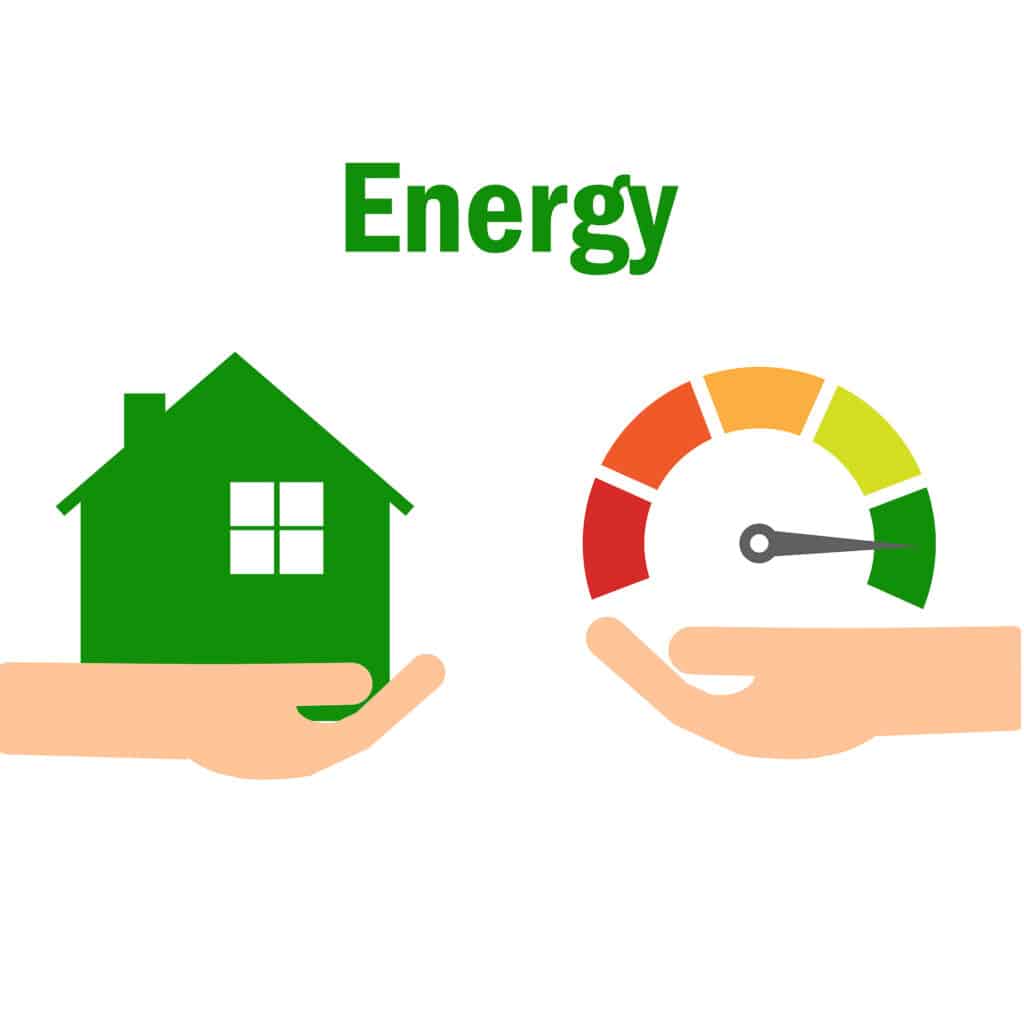
The Environmental Impact of Energy-Efficient Appliances
In the contemporary business landscape, sustainability has evolved from being a mere choice to an imperative for enterprises seeking to flourish in today's competitive market. Among the pivotal solutions driving this paradigm shift are energy-efficient appliances, which offer a profound opportunity for small businesses to proactively address and minimize their environmental impact.
One of the most notable benefits of these energy-efficient appliances lies in their potential to drastically lower greenhouse gas emissions. Through their innovative design and advanced technologies, these appliances consume significantly less energy compared to their conventional counterparts. Consequently, they play a crucial role in mitigating the adverse effects of climate change, which is one of the most pressing global challenges of our time. By reducing the demand for fossil fuels and electricity, energy-efficient appliances effectively curb the release of greenhouse gases into the atmosphere, thereby contributing to the broader global effort of combating climate change.
Furthermore, the positive impact of energy-efficient appliances extends to the preservation of precious natural resources. By consuming less energy, these appliances indirectly decrease the demand for resource-intensive energy production methods, such as coal mining and natural gas extraction. The conservation of these finite resources becomes all the more critical, considering the increasing strain on the planet's natural reservoirs. By embracing energy-efficient appliances, small businesses actively participate in safeguarding these resources for the well-being and prosperity of future generations.
Enhancing Business Reputation with Energy-Efficient Appliances
As the global consciousness shifts towards sustainable practices, businesses today recognize the paramount importance of adopting environmentally responsible measures. Among the multifaceted benefits of such initiatives, the integration of energy-efficient appliances stands out as a potent tool to enhance business reputation and garner admiration from customers, clients, and stakeholders alike.
One of the key advantages of embracing energy-efficient appliances lies in its ability to significantly improve brand image. When small businesses make a conscious choice to invest in these advanced technologies, they showcase their unwavering commitment to sustainability and environmental stewardship. Such a display of dedication resonates with environmentally conscious consumers who actively seek to support businesses aligning with their values. By adopting energy-efficient appliances, businesses position themselves as responsible and forward-thinking, effectively enhancing their brand image in the eyes of the public.
Beyond bolstering brand image, incorporating energy-efficient appliances into business operations can yield a direct impact on customer loyalty. Research consistently demonstrates that consumers are more inclined to remain loyal to brands that demonstrate a genuine sense of responsibility towards the environment. When customers observe a business prioritizing energy efficiency, they are more likely to perceive the company as a partner in creating a greener future. This emotional connection fosters a sense of loyalty and trust, ultimately leading to improved customer retention rates.
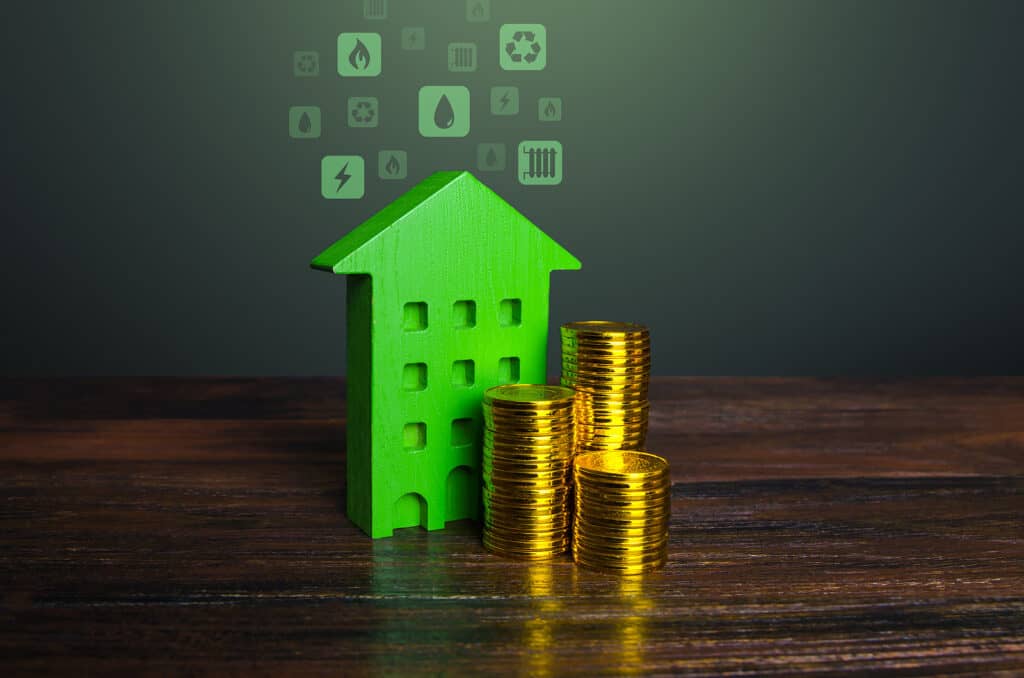
Improving Workplace Comfort and Productivity
The advantages of energy-efficient appliances extend far beyond their cost-saving and environmental benefits; they also play a pivotal role in enhancing the overall workplace environment, directly impacting employee comfort and productivity.
One significant aspect of this improvement lies in the implementation of energy-efficient heating, ventilation, and air conditioning (HVAC) systems. These advanced systems are designed to not only reduce energy consumption but also contribute to creating a more comfortable and pleasant indoor environment. By efficiently regulating indoor temperatures and ensuring proper ventilation, these appliances enhance the overall air quality within the workplace. The result is a more inviting and comfortable atmosphere that promotes well-being and reduces discomfort caused by extreme temperatures or stagnant air.
Moreover, the consistent maintenance of optimal indoor temperatures through energy-efficient HVAC systems has a direct correlation with employee productivity. Numerous studies have highlighted the positive relationship between comfortable working environments and heightened work performance.
Energy-Efficient Appliances for Small Businesses: Frequently Asked Questions
What are energy-efficient appliances?
Energy-efficient appliances are electrical or gas-powered devices designed to perform their tasks using less energy than standard models. These appliances include everything from refrigerators and freezers, to dishwashers, washing machines, air conditioners, and more. They provide the same, if not better, performance as their traditional counterparts but with significantly lower energy consumption.
Why should small businesses invest in energy-efficient appliances?
Energy-efficient appliances provide several benefits to small businesses. Firstly, they can significantly reduce utility bills by using less electricity or gas. Secondly, they can contribute to a business's green credentials, which can be a powerful selling point in today's environmentally-conscious market. Thirdly, governments and utility companies often provide incentives and rebates for businesses that invest in energy-efficient appliances, offsetting the initial purchase cost.
How do energy-efficient appliances work?
Energy-efficient appliances utilize advanced technologies to minimize energy consumption while maintaining or improving performance. This could involve better insulation in refrigerators, more efficient motors in washing machines, or variable speed drives in air conditioners, among other things.
How can small businesses find energy-efficient appliances?
Look for appliances with the energy star washer label or another recognized energy star rating. These labels are awarded to appliances that meet certain energy efficiency standards set by governmental agencies. Most appliance retailers will carry a range of energy-efficient products.
What types of energy-efficient appliances are available for small businesses?
Almost any appliance has an energy-efficient counterpart. This includes kitchen appliances like refrigerators, dishwashers, and ovens, office equipment like computers and printers, and HVAC systems like heaters and air conditioners.
Are energy-efficient appliances more expensive?
Energy-efficient appliances can have a higher upfront cost compared to traditional appliances. However, the cost savings from reduced energy consumption often outweigh the initial investment in the long run. Additionally, many governments and utilities offer incentives, rebates, or tax credits that can help offset the higher purchase price.
How Much Will You Save? – Small Business Energy Efficiency:
Embracing energy efficiency within a small business can lead to significant cost savings over time. By implementing energy-efficient practices and investing in energy-efficient appliances, businesses can experience a substantial reduction in utility bills. The exact amount saved will vary based on factors such as the business's size, industry, and current energy consumption.
However, studies indicate that small businesses can potentially achieve energy cost savings of up to 30% by adopting energy-efficient measures. These savings can add up quickly, resulting in increased profitability and the ability to reinvest funds into the business's growth and sustainability initiatives.
Save How Much Will On Buying EnergyEfficient Appliances:
The decision to invest in energy-efficient appliances can yield substantial savings on both residential and commercial scales. While energy-efficient appliances may have a slightly higher upfront cost compared to traditional models, the long-term benefits far outweigh the initial investment. Studies show that energy-efficient appliances, such as refrigerators, washing machines, and HVAC systems, can save households and businesses anywhere from 10% to 50% on energy consumption, depending on the appliance type and usage patterns.
Over the lifespan of these appliances, these savings can amount to hundreds or even thousands of dollars, making them a wise and financially sound choice. Additionally, various government incentives and utility rebates are available to further offset the initial cost, maximizing the return on investment and making energy-efficient appliances an even more attractive option.
How do energy-efficient appliances contribute to corporate sustainability goals?
Investing in energy-efficient appliances is a practical way for businesses to reduce their carbon footprint and contribute to corporate sustainability goals. By consuming less energy, these appliances reduce greenhouse gas emissions associated with energy production, helping businesses to meet their environmental targets and enhance their reputation as a green business.
What are some of the common misconceptions about energy-efficient appliances?
One common misconception is that energy-efficient appliances compromise on performance, which is not the case. They offer the same, if not better, performance as standard appliances, but with significantly lower energy usage. Another misconception is that they are always more expensive. While they can have a higher upfront cost, the reduced utility bills often make them a more economical choice in the long run.
This video can help with understanding Energy-Efficient
Choosing Sustainability and Savings: Energy Star Appliances vs Regular Appliances
Energy Star Appliances
Energy Star is a government-backed program that sets rigorous energy efficiency standards for appliances and equipment. Energy Star appliances are designed to meet these strict criteria, consuming less energy than their standard counterparts. By choosing Energy Star appliances, consumers can expect significant energy savings, lower utility bills, and reduced environmental impact. Additionally, many utility companies and governments offer attractive rebates and incentives to encourage the adoption of these energy-efficient appliances, making them a cost-effective choice for environmentally-conscious consumers.
Regular Appliances
Regular appliances refer to standard models that meet the minimum efficiency requirements set by regulations but do not qualify for the Energy Star label. While these appliances may be more affordable upfront, they tend to consume more energy during operation, leading to higher utility bills over time. Although they perform the intended functions adequately, regular appliances may not offer the same level of energy savings and environmental benefits as energy star appliances rebates. As a result, consumers looking for long-term cost savings and a reduced carbon footprint may find Energy Star appliances a more attractive and eco-friendly option.
Making the Shift to Energy-Efficient Appliances
The journey towards energy efficiency and sustainability involves a strategic and step-by-step approach, where transitioning to energy-efficient appliances plays a vital role. To embark on this transformative path, the process begins with a comprehensive energy audit, which serves as the foundation for identifying areas within your business that offer the most significant potential for energy savings.
The energy audit, a critical first step, involves a thorough assessment of your business's energy consumption patterns and efficiency levels. Professional auditors, equipped with specialized tools and expertise, analyze your energy usage, identifying inefficiencies, wastage, and opportunities for improvement. This detailed evaluation sheds light on energy-intensive processes, outdated equipment, and areas where energy-saving upgrades are most urgently needed.
Conclusion
As I reflect on the unparalleled benefits of energy-efficient appliances for my small business, I am filled with a sense of purpose and determination. As a conscientious owner, I recognize that improving my bottom line doesn't have to come at the cost of the environment. Embracing energy-efficient appliances represents an opportunity to create a thriving business while being mindful of our impact on the planet.
The idea of reducing operational costs, increasing savings, and reinvesting those funds to grow my business excites me. I can envision a future where my business not only thrives financially but also takes a leading role in promoting sustainable practices within the community. By investing in energy-efficient appliances, I can actively contribute to the global effort to combat climate change and conserve our precious natural resources.

